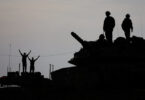Amir Mohammad Sayem
Of course, the situation of Afghanistan is not good at all. Based on the agreements signed between the USA and Taliban in Doha in 2019, the USA and some other countries are withdrawing military forces from Afghanistan. Already, a considerable number of military forces were withdrawn and the main airbase — Bagram Air Base — was handed over to the Afghan government force before the US forces left it. In the meantime, the Taliban has increased its attacks and took control of different parts of the country. As is claimed, the Taliban now controls more than half of the lands of Afghanistan. But fighting is continuing, even if there is a proposal for a truce and willingness for a political solution.
Of course, Doha peace talks between the Afghan government and Taliban representatives were carried out several times including the most recent ones. Even if there were some successes in terms of releasing Taliban prisoners and some earlier short-lasting cease-fires, there was no convincing and decisive achievement of such talks. Consequently, it was rightly assumed by experts on international relations and others that once the US and other forces leave Afghanistan, the Taliban would increase strikes. Such a prediction has become the reality after the recent reduction of the US forces in Afghanistan. Since the Taliban has an intention to hold back its power lost in 2001, cease-fire alone cannot be the solution. Who will ensure that cease-fire is maintained by the parties especially the Taliban? Thus, major conflicts between the government forces and the Taliban are not unlikely at all.
Of course, it seems that the government forces alone may not defeat the Taliban, even if its strengths are further increased. In fact, the heavily powered US forces — that have fought for around twenty years — could not defeat the Taliban. On the other hand, it may be difficult for the Taliban to defeat the government altogether, even if many predict so. Already, Turkish forces took a stand in the main airport of Afghanistan for protecting it. Given that Turkish forces do not play decisive roles to protect the government, it may simultaneously be difficult for the latter to maintain its present control. Obviously, the possibility of the victory of the Taliban in more areas is, thus, not unlikely, even if it fails to ensure a complete victory. But an important question remains on whether conflicts should be a solution. To me, conflicts in Afghanistan cannot go on this way year after year.
Already, hundreds of thousands of Afghans have become victims of fights between the forces. In the current conflicts, especially which re-started in the last month, many Afghans left Afghanistan or their home places from several districts including Kandahar. More fights can displace millions and devastate the already vulnerable economy of the country. But my questions to Afghan leaders, the government and the Taliban, are: Who will be actually benefited if the fight continues? Though the government runs the country keeping the Taliban as it is now, will there be any real solution? If the Taliban wins the conflicts, will there be any real solution and will they be capable of running the country through the establishment of the system of rule it did before the US attack in 2001?
Of course, the Afghan crisis is a very difficult one. But an acceptable solution needs to be identified. Before finding a possible solution I need to note here that US forces should not have withdrawn without making the Afghan military sufficiently powerful to tackle the Taliban forces. Undeniably, staying foreign forces in a country does not bring any lasting solution. But it would have been better if the government forces were sufficiently made capable or if there were an acceptable solution before their leave. Also, other countries that are supporting the Taliban — directly or indirectly — could have played some roles in compelling it to come to an acceptable solution to the conflict that started after the US invasion. But there were no such roles on the grounds probably due to geopolitical reasons.
But more effective efforts are now needed to end the conflicts and find an acceptable solution. Undeniably, there is no alternative to a political solution to the type of crisis in Afghanistan. But what can be a desirable political solution? Is it a power-sharing government for a certain time? Or is it another election? Both can be possible options. But continued negotiations between the warring forces, along with cease-fire, are needed to reach a political solution. If a power-sharing government is needed, it needs to ensure elections after a certain time. Or if new elections are more acceptable, with or without a power-sharing government, elections need to be made fair and acceptable. If necessary, elections may be monitored by the peacekeeping forces of the United Nations. But I strongly believe that the Taliban needs to participate in elections as a genuine political party. In fact, it is not desired that the Taliban as a military force participates in elections and runs a country.
Moreover, some other important issues such as the integration of the forces of Taliban into the mainstream military force, securing of a complete ceasefire, the issue of the earlier ruling system and the maintenance of women’s deserved rights including education, jobs and social mobility need to be settled down for reaching to an acceptable political solution. Of course, the integration of Taliban forces may have some risks such as the usage of such an opportunity to create more chaotic situations and overthrow the potentially elected government, given that the Taliban — or its affiliated political party — cannot form it by people’s votes. Also, the establishment of the earlier ruling system and the cancelation of the deserved rights of women are unacceptable not only to the Afghan women and a portion of male members of the society including educated but also to others – locally, regionally and globally.
Of course, the United Nations can play a significant role in a political solution. If necessary, the UN can send its peacekeepers to Afghanistan. But the roles of the USA that carried out military strikes against the Taliban for around twenty years can also be very effective in reaching an acceptable political solution, though its earlier efforts did not see any light yet. Besides, other global and regional powers including Russia, China, India and Pakistan have some undeniable roles to play to end conflicts in Afghanistan that have been going on for decades/years. Global and regional powers — both against the Taliban and in favor of the Taliban directly or indirectly — should be earnest in their acts. Most people around the world do not want conflicts in Afghanistan anymore.
Not less important is that both the government and Taliban need to play more responsible roles. While the government should understand that keeping the Taliban as it is now is not a solution, the Taliban needs to realize that continuing conflicts and winning these and establishing the earlier ruling system that was placed when the Taliban was in power before the US invasion is neither acceptable by a large portion of Afghans nor by other countries. It may not be unsurprising that general people may revolt against the Taliban if it wins the war and establishes the earlier system. Also, it is not unlikely that foreign powers may once again become necessary and the reality in Afghanistan, if it continues conflicts and establishes the earlier ruling system that violates deserved rights of others.






